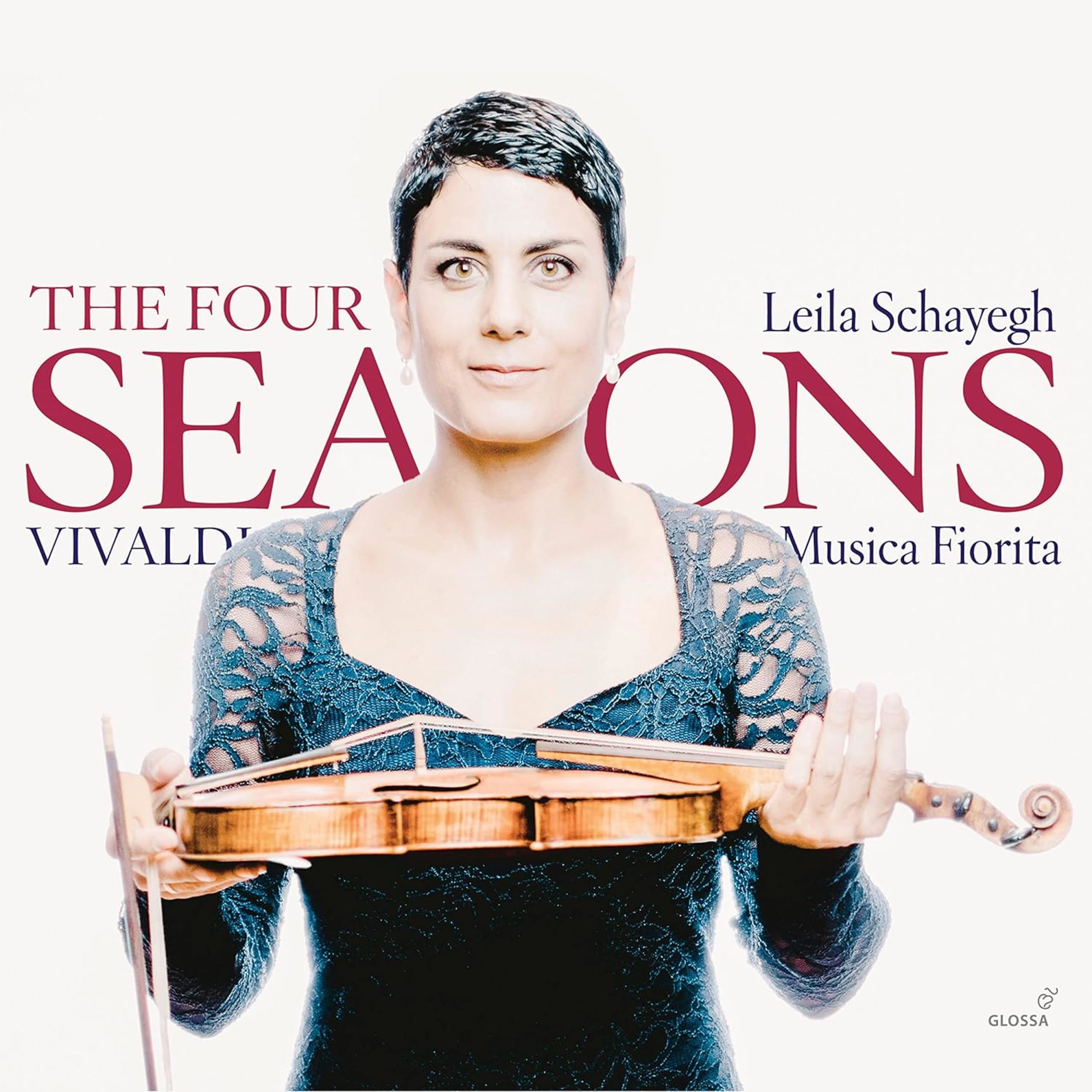
2019
Antonio Vivaldi – The Four Seasons
Leila Schayegh (violin)
Musica Fiorita
Daniela Dolci (direction)
About this album
With her version of Vivaldi’s Four Seasons, Leila Schayegh continues her exploration of the violin repertory, always combining musical insight, virtuosic brilliance and historical understanding. Over the last years, the Swiss musician has become one of the leading violinists of her generation (and is helping the next one, thanks to her position as professor in the Schola Cantorum Basiliensis).
On this dazzling new exhibition, Schayegh –who plays a late 17th-century Andrea Guarneri instrument– is joined by the fine and colourful ensemble Musica Fiorita, directed by Daniela Dolci. The opera composer Vivaldi is omnipresent in all of these four violin concertos, also thanks to the use of elements of Baroque theatre: the sounds of wind machines or bird whistles contribute to making this a delightful, fascinating and “different” version of one of the most recorded works of all times.
The album also includes Vivaldi’s Follia (Sonata op. 1 no 12) and the Ciaccona from the Violin Concerto in D major. An essay by Schayegh herself and a photo series by Susanna Drescher complement a project which will be a pleasurable surprise for lots of listeners.
Reviews
On paper, one might despair that this is yet another in the long line of historically informed Four Seasons in which ‘style’ – I use the word very loosely in connection with certain recordings – wins over substance. Yet such is the beguiling sincerity of Schayegh’s playing and the ravishing sound she produces – you can almost sense her holding musical hands with the likes of Christian Ferras or Augustin Dumay on occasion – and the no-holds-barred sensitivity and commitment of the nine-piece Musica Fiorita under harpsichordist and director Daniela Dolci, that any potential reservations virtually dissolve into inconsequence.
– Julian Haylock, The Strad, 3 January 2020
Schayegh’s playing deserves quite a bit of praise as well. A Baroque specialist who studied, along with the rest of Musica Fiorita’s musicians, at the Schola Cantorum in Basel, Switzerland, her playing is remarkably smooth and inventive. In the allegros, Schayegh’s phrases are long and not interrupted by the demands of the bow or position shifts. Short, fast quarter notes vibrate with appropriately subtle vibrato. In the Largos and Adagios, her embellishments are expressive and sit comfortably among a longstanding Baroque tradition. In the opening track of the album, “La Follia,” one never tires of hearing variations on the same sixteen-bar phrase, Schayegh imbuing each with a new mood. The Siciliana variation (7’00”) is especially refreshing.
– Jonah Pearl, The Classic Review, 2 September 2019
In her recordings to date Schayegh has shown herself a violinist of real quality, so it is no surprise that she plays with silvery-smooth tone and sure-handed virtuosity, or that her ornamentation of the slow movements of Spring and Winter has shapely long lines. Yet I also feel that she has revealed more of her personality here, while at the same managing the trick of making the performance not be all about her. For that, the orchestra is right on her side, enthusiastic and alert to every nuance, although they may have liked a clearer acoustic, while to my ears two harpsichords, two pluckers and a psaltery is too much continuo for a single-string band. The result, though, is still a Seasons worth turning to more than once in a while.
– Lindsay Kemp, Gramophone
Leila Schayegh veut se confronter à une autre vision divine du monde. Elle a repensé le texte, les effets, les affects, les tempi, avec un vrai souci du détail, comme pour ressusciter, une nouvelle fois encore, le simple bonheur de voir le jour se lever. Son violon aime orner les mouvements lents sans dénaturer la simplicité de la mélodie originelle. Leila Schayegh joue avec tant de cœur que le langage des éléments de la nature peut encore nous surprendre. À ce titre, l’enregistrement présente quelques effets sonores extra instrumentaux qui théâtralisent une œuvre qui cherche encore à nous surprendre.
– Hervé Mestron, Res Musica, 9 novembre 2019